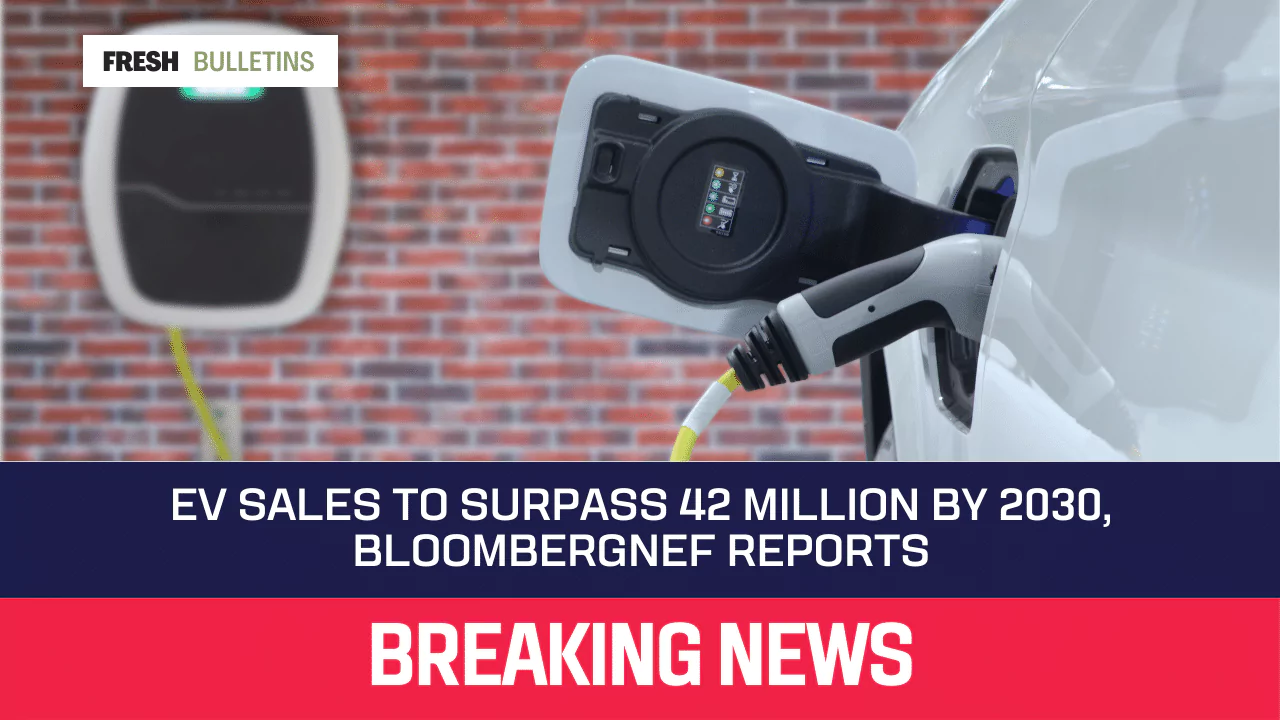EV Sales to Surpass 42 Million by 2030, BloombergNEF Reports
A recent report by BloombergNEF (BNEF), a clean energy research firm, predicts a significant surge in electric vehicle (EV) sales. According to their estimates, EV sales will surpass 42 million by 2030, accounting for nearly half (44%) of all car sales globally. This significant growth trajectory signifies a bright future for electric vehicles and a potential turning point in the global transportation sector.
EVs vs Traditional Cars: A Clear Advantage in Emissions
One of the primary drivers of EV adoption is their environmental advantage. Unlike traditional gasoline-powered cars, EVs generate zero tailpipe emissions, significantly reducing city air pollution. This is especially pertinent in metropolitan regions where the quality of the air is a significant issue. Additionally, BNEF’s report highlights that even when considering emissions generated during EV production, the overall environmental impact is still lower compared to gasoline vehicles, especially as the electricity grid continues shifting towards cleaner energy sources like solar and wind power.
The Future of EVs: A Multifaceted Transformation
Several factors are contributing to the optimistic outlook for EVs. Firstly, EV prices are steadily declining due to economies of scale and advancements in battery technology. This is making them more accessible to a wider range of consumers. Government incentives and subsidies in many countries are further accelerating this trend. Secondly, the electric vehicle market is expanding beyond passenger cars. The rise of electric air taxis and commercial trucks promises to revolutionize transportation in various sectors. Electric air taxis, for example, could offer faster and more convenient transportation options in urban areas, while electric trucks have the potential to reduce emissions from the freight industry significantly. These advancements have the potential to not only reduce emissions but also improve traffic congestion and overall efficiency. China, a global leader in EV production and sales, is at the forefront of this innovation. Their continued investment in EV technology, including battery research and development, is likely to play a significant role in shaping the future of electric vehicles.
Challenges and Solutions for EVs: A Roadmap for Widespread Adoption
Despite the promising outlook, challenges still need to be addressed for widespread EV adoption. One of the main concerns for potential EV buyers is range anxiety, the fear of running out of battery power before reaching a charging station. However, advancements in battery technology are steadily increasing the range of EVs, alleviating this concern. Governments and private companies are investing heavily in expanding charging infrastructure, making it easier for EV owners to find charging stations on their journeys. This includes public charging stations and encouraging workplaces and apartment buildings to offer charging options.
Another key challenge is battery recycling. As the number of EVs on the road grows, there will be a growing need for efficient and sustainable methods to recycle used batteries. Research and development in battery recycling technologies are crucial to ensure a responsible and environmentally friendly EV ecosystem. Ideally, recycled materials from old batteries can be used to create new ones, reducing reliance on virgin materials and creating a closed-loop system.
In conclusion, the BNEF report paints a clear picture: the future of transportation is electric. With declining costs, continuous innovation in battery technology and charging infrastructure, and growing environmental awareness, EV sales are poised for a significant increase in the coming years. By addressing challenges like range anxiety and battery recycling, electric vehicles have the potential to revolutionize transportation, paving the way for a cleaner and more sustainable future.







